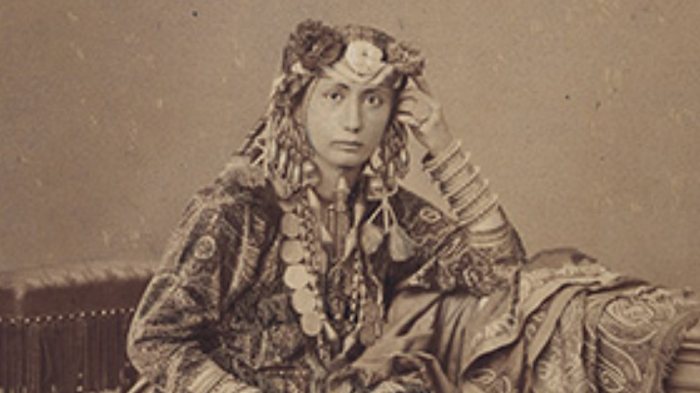
Born on August 30, 1844, Salama bint Said became the Princess of Zanzibar under her father, Sayyid Said bin Sultan, Sultan of Oman and Zanzibar until 1856. In 1859, her brothers Sayyid Majid and Barghash fought for the throne, and Said became the secretary of Barghash’s party. Eleven years later, Barghash would become the sultan after Sayyid Majid’s death, but the conflict had already led Said to move to Europe. In 1866 she moved to Germany with Heinrich Ruete after her pregnancy had become apparent. After she was baptized, the pair officially married and Said became a new version of herself: Salama bint Said became Emily Ruete, and Hamburg, Germany became her new home where she had three more children.
In 1870, Heinrich died, leaving Ruete to face culture shock and financial instability while raising four children all on her own. In addition to the new language, norms and religion, Ruete’s religious conversion had forced her to forfeit her title as Zanzibar’s princess, along with her land holdings and inheritance. Nonetheless, she persisted in the face of European and East African gender restrictions: she wrote memoirs, taught Arabic, and engaged in German colonial politics. Through secret letters written in Arabic, she urged her brother Sultan Barghash to support German, not British, colonization, insisting that she could use her connections and knowledge of German politics and culture to help him navigate European colonial forces.
In 1886, Ruete wrote the first known autobiography of an East African woman. The two volumes – An Arabian Princess Between Two Worlds and Memoirs of an Arabian Princess from Zanzibar – describe her political and cultural presence, as well as her experiences as an Arabic and formerly Muslim woman living in Germany. In an attempt to demystify the East, Ruete highlights the similarities in their education, health, materialism, politics, and customs. Notably, she justifies the Muslim faith’s arranged marriages, compares them favorably to Western marriages, noting that the West also produced unhappy marriages. Even though Ruete claimed she wrote the memoirs for her children, they challenged the stereotypes present in public opinion on East African matters. Emily Ruete was a female author and political actor who successfully navigated her migration from the Muslim Arabic to the Christian German world, supporting her family despite financial hardships and gendered barriers in Germany.
– Megan McLeod (University of Missouri)